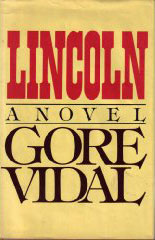Lincoln Logorrhea

Even before the grand finale of the 2008 election campaign, new books on the only other president elected from the great state of Illinois, Abraham Lincoln, were much in evidence in reviews and bookstores. No surprise there, as somewhere in his forthcoming tome, Angels and Ages: A Short Book About Darwin, Lincoln, and Modern Life, Adam Gopnik mentions that Lincoln is the second most popular biographer’s subject after Jesus Christ. In the past few months we have seen (the titles are effectively descriptive): Abraham Lincoln: Great American Historians on Our Sixteenth President edited by Brian Lamb (Public Affairs); Lincoln’s Darkest Year: The War in 1862 by William Marvel (Houghton Mifflin); Lincoln and His Admirals by Craig L. Symonds (Oxford University Press); The Great Comeback: How Abraham Lincoln Beat the Odds to Win the 1860 Republican Nomination by Gary Ecelbarger (Thomas Dunne Books/St. Martin’s Press); Lincoln President-Elect: Abraham Lincoln and the Great Secession Winter 1860-1861 by Harold Holzer (Simon & Schuster); Tried by War: Abraham Lincoln as Commander in Chief by James M. McPherson (Penguin Press); Lincoln: The Biography of a Writer by Fred Kaplan (HarperCollins); and Looking for Lincoln: The Making of an American Icon by Philip B. Kunhardt and Peter W. Kunhardt (Knopf).
As the process of knitting a cabinet and administration has unfolded, rehabilitated plagiarist Doris Kearns Goodwin’s Team of Rivals: The Political Genius of Abraham Lincoln has been frequently cited, not the least of the reasons being the president-elect’s gestures and consideration of past and future rivals. (Mrs. Clinton being the chief example—in the same vein as Lincoln appointed Edward Seward as secretary of state.) I have no doubt that the Lincoln bibliography listed above represents fine scholarship for students and history buffs. On the other hand, though it falls under the rubric of historical novel, Gore Vidal’s Lincoln (Random House), part of his Narratives of Empire series, offers a narrative true to the known facts and insights and coloration that are informative beyond a collection of factoids, dates, and such. Vidal is gifted with making the story a vivid, unfolding drama and presenting the dramatis personae from Lincoln and his coterie to the various eastern political establishment bigwigs as real and lively. Of course, Vidal was criticized (read: attacked) for his portrayal of Lincoln, and per usual, he gives better than he gets:
